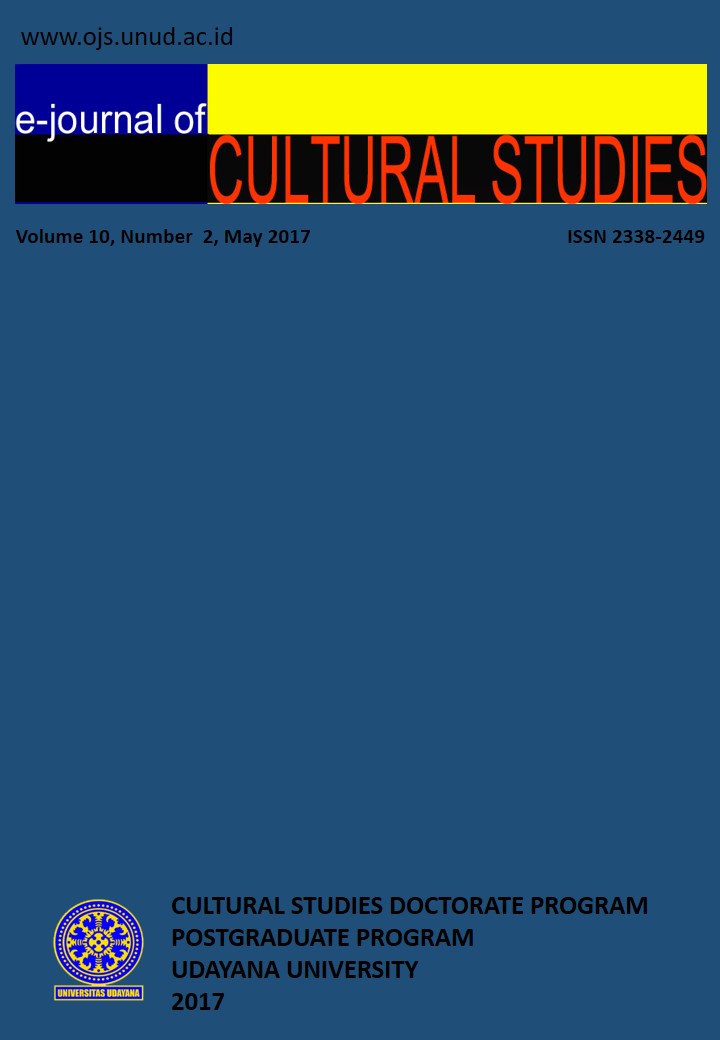COMPASSIONATE CAPITALISM IN HOTEL INDUSTRY IN UBUD, BALI
Abstrak
This present study analyzes the success of the practice performed by the investors in hotel industry using the ideology of the compassionate capitalism. The study was conducted in Ubud as the habitus of the investors in hotel industry. The area has the characteristic of tending to be resistant and strongly bound to customs and traditions, and is skeptical to the gradual modern impact. The problem of the study is what the practice of the compassionate capitalism performed by the investors of hotel industry in Ubud like. The study is intended to identify the form of the practice performed by the investors in hotel industry in Ubud as a tourist destination, Gianyar Regency, Bali. The qualitative-interpretative method was used. The data were collected using observation, interview and documentation techniques. The data were analyzed through data reduction, data presentation, and conclusion drawing using the theories of cultural studies which are eclectically related. The result of the study identifies that the investors in hotel industry in Ubud perform their practices by: (1) using the Company Social Responsibilities (CSR) as the basis for performing their practice in hotel industry; (2) adopting the local genius stated in the community-based tourism, CBT). The finding of the study indicates that the investors use the structural pattern of the compassionate capitalism which adapts to capitalism in the case study of hotel industry.




